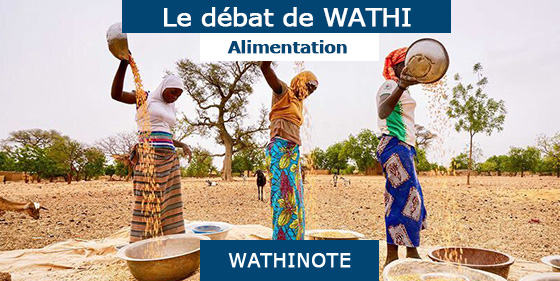

Author: Krystyna Swiderska
Affiliated organization: International Institute for Environment and Development (iied)
Type of publication: Article
Date of publication: May 22, 2020
The COVID-19 pandemic has exposed huge vulnerabilities and inequalities in food systems. They are highly vulnerable to the impacts of climate change: to droughts, floods, typhoons, sea-level rise the current locust outbreak in East Africa. But they are also part of the problem, contributing about one third of global greenhouse gas emissions and being highly inequitable too.
The COVID-19 pandemic is not only a health crisis but also an economic crisis and a food crisis, coming on top of the climate crisis. Like climate change, its effects will be most acutely felt by the poorest and most vulnerable countries and communities.
COVID-19 makes a Just Transition to more resilient, equitable and low-carbon food systems all the more crucial and urgent. It is a wake-up call that has forced people to think differently and look for change. We must make the most of this opportunity.
So what are the impacts and lessons from the pandemic that can inform a Just Transition in food systems?
- Informal, low-paid and migrant workers are highly vulnerable to food insecurity: many have lost their jobs (PDF) and received no state support, leading quickly to hunger. Women largely work in the informal sector and so face massive income losses. Others continue to work in poor overcrowded conditions with high risk of contracting the disease.
- A ‘famine of biblical proportions’ may be in the making, according to the head of the World Food Programme: COVID-19 could increase the number of acutely food-insecure people from 135 million to 265 million. Thirty million people could die in a matter of months, due to shortfalls in donor funding and food aid.Border closures could have grave food security consequences for vulnerable groups such as pastoralists. A global recession will disrupt food supply chains, according to the ‘Global Report on Food Crises 2020’. Food shortages, restrictions on movement and soaring unemployment could create the conditions for social and political unrest.
- A global recession is a serious threat for hundreds of millions of people already living on the cusp of hunger, malnutrition and extreme poverty: between 14 and 49 million people may be pushed into extreme poverty in 2020, according to various modest projections.
- Industrial farming systems are high risk – we need more resilient agroecological food systems: intensive livestock production amplifies the risk of diseases emerging and spreading. The probability of high impact outbreaks in animals increases as large numbers of animals are kept in small spaces and genetic diversity is narrowed.
- Globalised food systems are highly vulnerable to shocks: export bans could lead to food shortages in import-dependent countries and panic buying by importing countries could drive up global commodity prices. This could severely affect countries with food insecure populations and countries that are net importers of food. Following the pandemic shock, Bhutan has decided to transition to greater food self-sufficiency.
Steps towards a Just Transition
A crucial first step on the Just Transition pathway is to establish inclusive policy dialogues, bringing marginalised, poor and vulnerable groups into decision-making forums at all levels local, national and global. In fact, there’s already been an upsurge in solidarity and rapid action by civil society and governments, often working together, to address food shortages this needs to happen more.
A global recession is a serious threat for hundreds of millions of people already living on the cusp of hunger, malnutrition and extreme poverty: between 14 and 49 million people may be pushed into extreme poverty in 2020, according to various modest projections
Governments must reform agri-food policies to prioritise the needs of food-insecure, poor and vulnerable people and to address major inequalities in access to land for millions of smallholders across Southern Asia and sub-Saharan Africa. And massive input subsidies need to be repurposed to support agroecological practices. Intensification is not necessarily the solution less intensive production systems produce less waste, as do localised food systems, making it easier to ensure food reaches those in need.
Perhaps surprisingly, the best strategy to respond to this global pandemic may be to go local and less intensive, creating systems that not only serve the immediate crisis but also build resilience to ongoing and future shocks.
Les Wathinotes sont soit des résumés de publications sélectionnées par WATHI, conformes aux résumés originaux, soit des versions modifiées des résumés originaux, soit des extraits choisis par WATHI compte tenu de leur pertinence par rapport au thème du Débat. Lorsque les publications et leurs résumés ne sont disponibles qu’en français ou en anglais, WATHI se charge de la traduction des extraits choisis dans l’autre langue. Toutes les Wathinotes renvoient aux publications originales et intégrales qui ne sont pas hébergées par le site de WATHI, et sont destinées à promouvoir la lecture de ces documents, fruit du travail de recherche d’universitaires et d’experts.
The Wathinotes are either original abstracts of publications selected by WATHI, modified original summaries or publication quotes selected for their relevance for the theme of the Debate. When publications and abstracts are only available either in French or in English, the translation is done by WATHI. All the Wathinotes link to the original and integral publications that are not hosted on the WATHI website. WATHI participates to the promotion of these documents that have been written by university professors and experts
